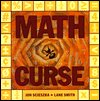Preserved for Posterity
I may not be terribly fond of Looking for Alaska, this year's Printz Award winner, but the author, John Green, has an adorable photo essay up at his website about how he learned he'd won. The essay is so funny, touching, etc., etc., etc., that I have decided right here on the spot to take a shot at reading his next book. Whatever it may be. Whenever it may show up.
Thanks to A Chair, A Fireplace and A Tea Cozy for the link.
Dealing With Library Books
I had to pay a six dollar and forty cent fine at the library yesterday, so I took some couch time this afternoon to polish off the stack of books involved--all by Jon Scieszka. His last name rhymes with Fresca! Now I can talk about him!
I wasn't a huge Scieszka fan, but decided to give him another chance because he had a great article a while back in The Horn Book. I thought I blogged about it, but I can't find it now, which suggests I spelled his last name wrong. Oh, well, one more humiliation to accept.
Anyway, in the past I felt that Scieszka's humor was strained. I took a stack of his picture books out of the library, and here is what I've discovered about them: to get Scieszka, you've got to understand that his humor isn't about the punchline, it's about the set-up. At least, that's my view.
In his Horn Book article, Scieszka wrote about his experience as an elementary school teacher trying to teach a unit on jokes. He told this one great story about a kid getting up to tell a joke that clearly had an off-color punchline, but when the boy got to that point in his story, he'd forgotten it and just ended the story with something somewhat unrelated to what he'd been talking about.
Back in the day when I was a mom-volunteer in a grade school, helping younger kids with their writing, I often saw that kind of thing. Kids would work on a story and just get tired and stop or just sort of ramble off into something unrelated.
I think Scieszka's book Squids Will Be Squids, in particular, reflects that kind of kid sensibility. In the review I linked to, from CM Magazine: Canadian Review of Materials, Valerie Nielsen said, "...this latest collaboration between Scieszka and Lane may not turn out to be a winner. Many of the morals following the fables miss the mark. For the most part, they elicit a puzzled frown rather than a giggle."
That's true. I was reading these things, enjoying the fables, and then getting to the morals and going, "What?"
But kids may not have the same response because kids frequently write and tell stories the same way.
I read Baloney (Henry P.) totally oblivious to the fact that the main character was an alien. (This makes sense. I wrote an entire book about kids whose mom was totally oblivious to the aliens in her yard.) I found all the strange words in the text annoying. Then I got to the end of the book, learned that the words weren't strange, they were... Well, I don't want to give anything away.

While I was reading Math Curse, I kept thinking, Well, I find this humorous, but I'm an adult. Will kids get this? Is there too much text? I like the incongruous options in the muliple choice questions, but what is the real answer? Do readers have to figure out the real answer?
Give it a rest, Ms. Gauthier. This book is for a child who feels overwhelmed--maybe hammered?--by all the math that's thrown at her at school. She wants to be able to laugh about that feeling. Forget about the real answers.
I think many of Scieszka's picture books are not for the traditional picture book audience, preschoolers, but for older children, who we don't necessarily associate with picture books. There's nothing wrong with that, it expands the definition of picture book. I also think Scieszka is definitely a writer who writes who he is--a former grade school teacher.
So, here's an example of Gail giving an author another chance as a result of reading his nonfiction and definitely changing her mind about him. Tomorrow, class, we'll discuss another case, which did not turn out so well.
No comments:
Post a Comment